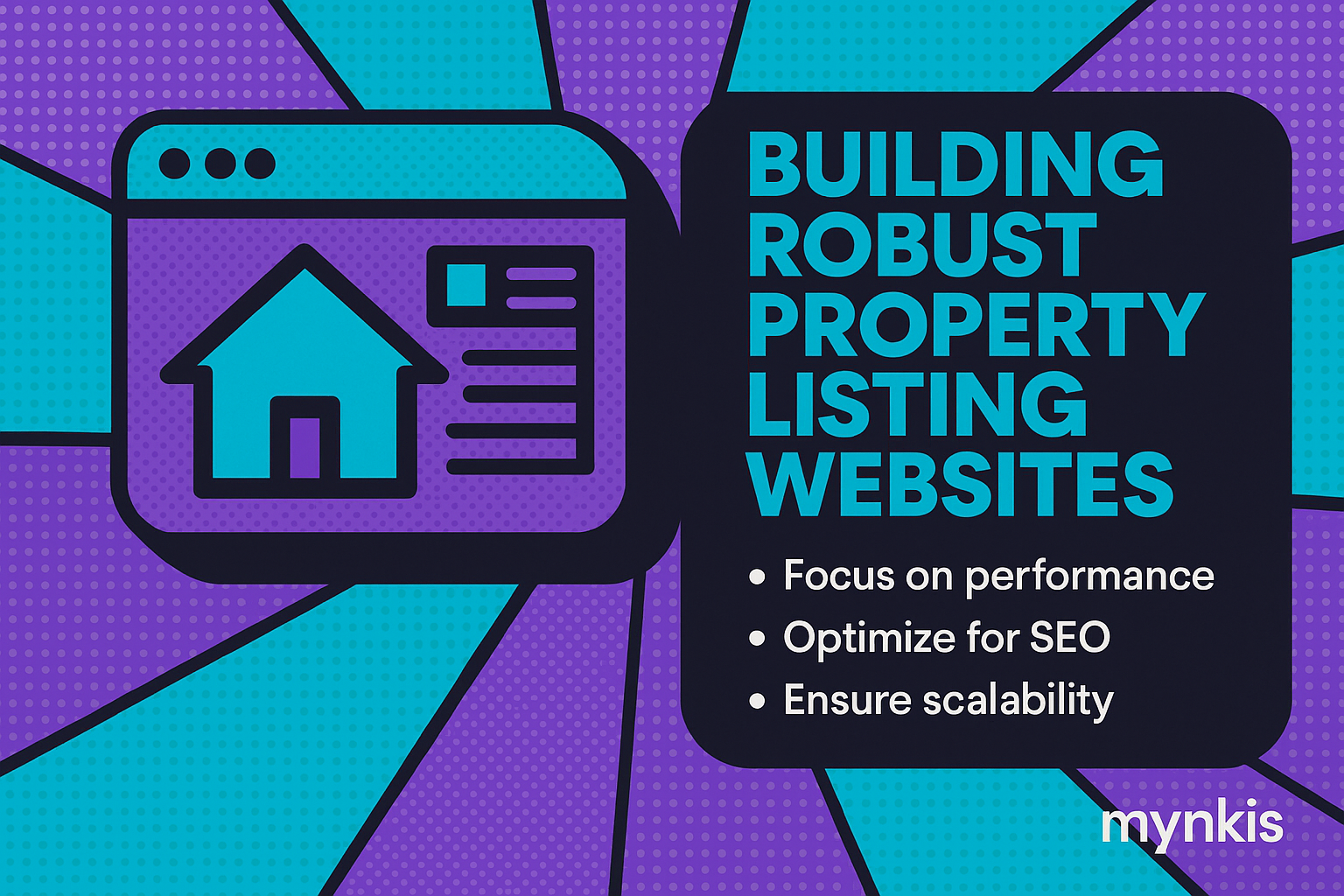Schedule a Demo
When creating a property listing website, the last thing any broker wants is code that hinders the website's performance or, worse, brings it crashing down. To avoid these scenarios, you should start your development process with a well-organized roadmap. Initially, sketch out the architecture of the site to ensure it accommodates future SEO strategies. Remember, without a strong foundation, even the best SEO techniques won't save you from inefficient coding or a sluggish website.
Testing is non-negotiable if you’re targeting top search rankings for local queries. It's easy to fall into the trap of thinking you can defer testing until the end of development, but trust me, you'll regret it. In my experience working with numerous developers, I've seen how starting to test early can prevent tons of headaches down the line. Implement unit tests for each component and integration tests to see how well different parts of your website work together. The earlier you catch errors, the less they'll haunt you at launch.
“Clean Code” shouldn’t just be a buzzword in the realm of custom software development. Ensure your codebases are approachable not only for you but for the future developers who might take over. For property listing websites, maintaining clear, well-commented code enhances the site's maintainability and allows for easier updates, ensuring your SEO efforts aren't compromised by deprecated or unnecessarily complicated functions.
Version control, particularly tools like Git, has become the backbone of error-free software development. It enables you to track changes, revert to older versions when necessary, and collaborate more effectively. For a complex project like an enterprise web solution focused on property listings with SEO capabilities, any alteration that could improve local query performance should be meticulously logged and evaluated.
SEO isn't just about content—it's about the underlying technology. When you're dealing with enterprise web solutions for property listing, embedding SEO into your site's architecture from the start is vital. Incorporate structured data markup to enhance visibility on search engine results pages (SERPs) and prioritize mobile-first design, given the significant amount of local searches occurring on mobile devices.
For brokers, 'local' means everything. A good web developer must understand that URL structuring, geotagging, and incorporating local schema markup can significantly affect how search engines view the relevance of a property listing site to local queries. This isn't about stuffing keywords. Rather, it's about creating a technical framework that intuitively communicates the locality and utility of your website to search engines.
While focusing on 'error-free' aspects of your property listing website, don't overlook cybersecurity. A secure site isn't just about protecting your own data; it impacts SEO performance too. HTTPS should be standard. Research by Google shows that secure sites rank higher. Neglect this, and you risk diminishing the potential audience for your listings.
Increase your property site's performance at a code level. Your databases need to be optimized to retrieve listings swiftly, your JavaScript and CSS should be clean and not bog down page loads, and your images must be compressed for the fastest user experience. Poor performance translates directly into user dissatisfaction and lost SEO points. Complement local search capabilities by ensuring your site's performance caters efficiently to geographically nearby users.
User experience on your property listing site will make or break your SEO efforts—and thus your business's online visibility. Code that hasn't been focused through a usability lens can create a fractured user experience that does more harm than good. Simplicity, in this case, not only refers to how consumers interact with your listings but how effectively you've coded seamless functionality for navigating those listings.
In custom software development, especially of SEO-focused property listing platforms, the mindset of continuous learning needs embedding in your team’s culture. You’ve heard it, “the landscape changes” and indeed, with SEO, we've seen technologies like voice search or the growing impact of AI on SERPs come about remarkably fast. Thus, developers must always be on the cutting edge, studying search trends, and implementing needed changes to maintain an error-free and SEO-optimal property listing website.
Your development practices should not be isolated—they need to resonate with the overall business objectives of your brokerage. If the goal is to climb those local query ranks, then your development efforts must aim at crafting a technically impeccable site that meets local searcher needs directly, improving visibility, user engagement, and thus, lead generation.
Adopting agile development methods isn’t just about being trendy; it works exceptionally well with the dynamic nature of SEO and the property market. Iteration offers the flexibility to test, refine, and improve as you identify opportunities for enhancing your site's response to local property queries. I find that an agile mindset aligns perfectly with updating strategy based on what's coming up in the vast search engine arena.
